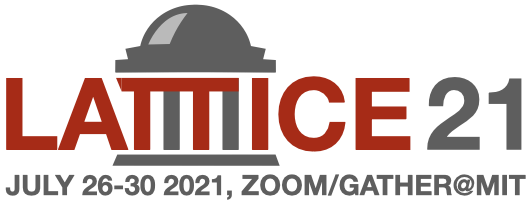Speaker
Description
This report is devoted to the study of the influence of relativistic rotation on the confinement/deconfinement transition in gluodynamics within lattice simulation. We perform the simulation in the reference frame which rotates with the system under investigation, where rotation is reduced to external gravitational field. To investigate the confinement/deconfinement transition the Polyakov loop and its susceptibility are calculated for various lattice parameters and the values of angular velocities which are characteristic for heavy-ion collision experiments. Different types of boundary conditions (open, periodic, Dirichlet) are imposed in directions, orthogonal to rotation axis. Our data for the critical temperature are well described by a simple quadratic function $T_c(\Omega)/T_c(0) = 1 + C_2 \Omega^2$ with $C_2>0$ for all boundary conditions and all lattice parameters used in the simulations. From this we conclude that the critical temperature of the confinement/deconfinement transition in gluodynamics increases with increasing angular velocity. This conclusion does not depend on the boundary conditions used in our study and we believe that this is universal property of gluodynamics.
